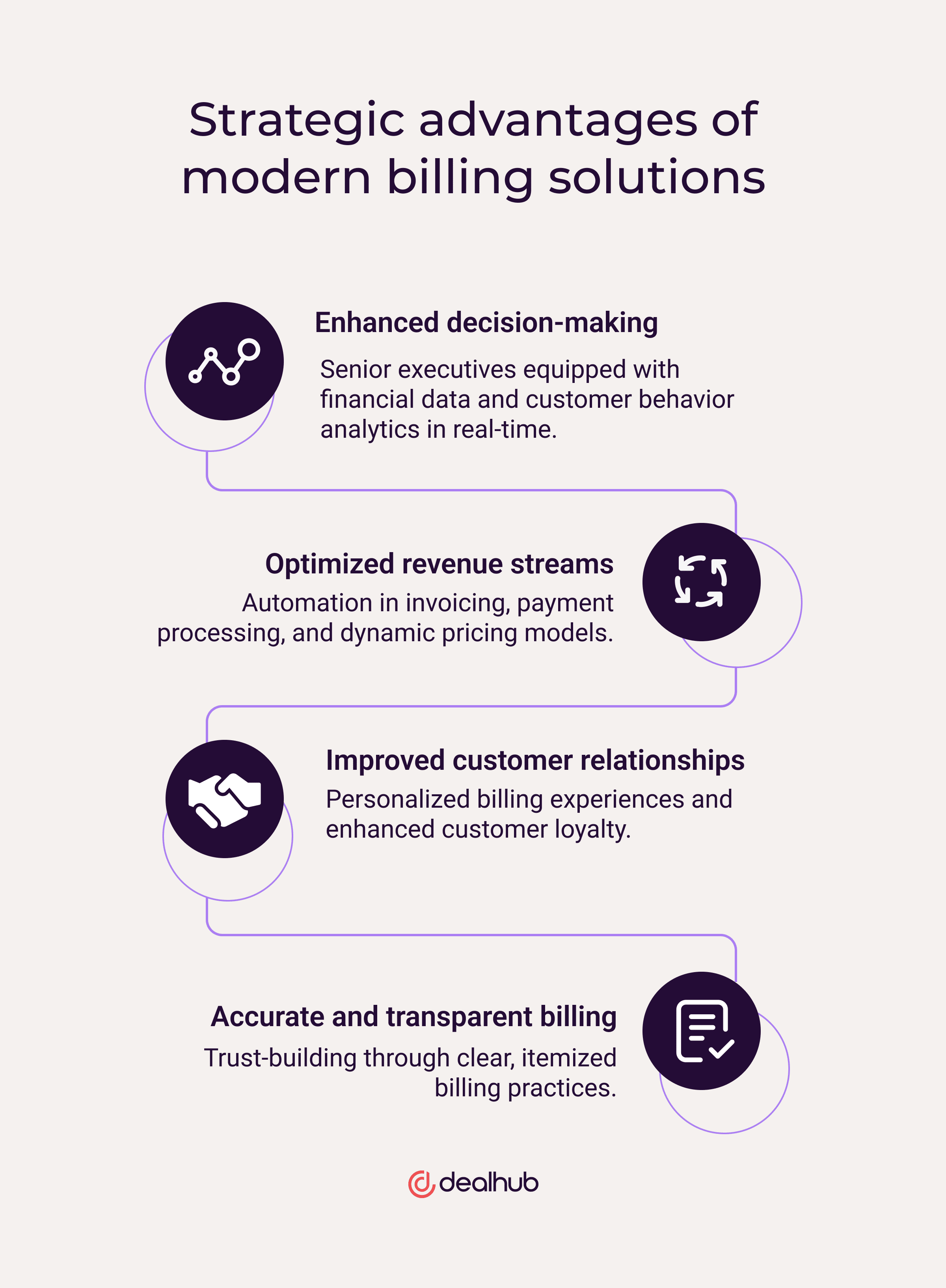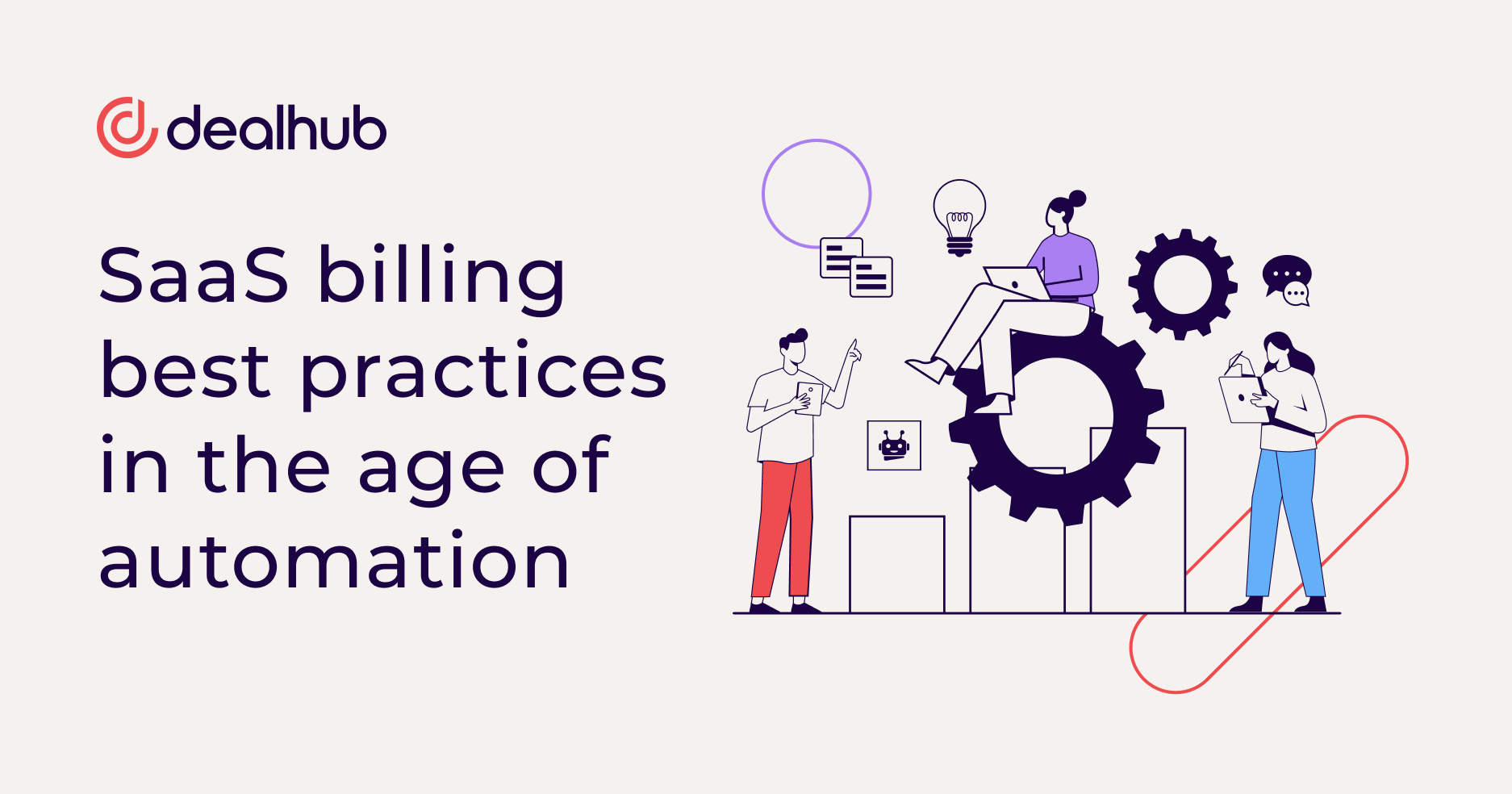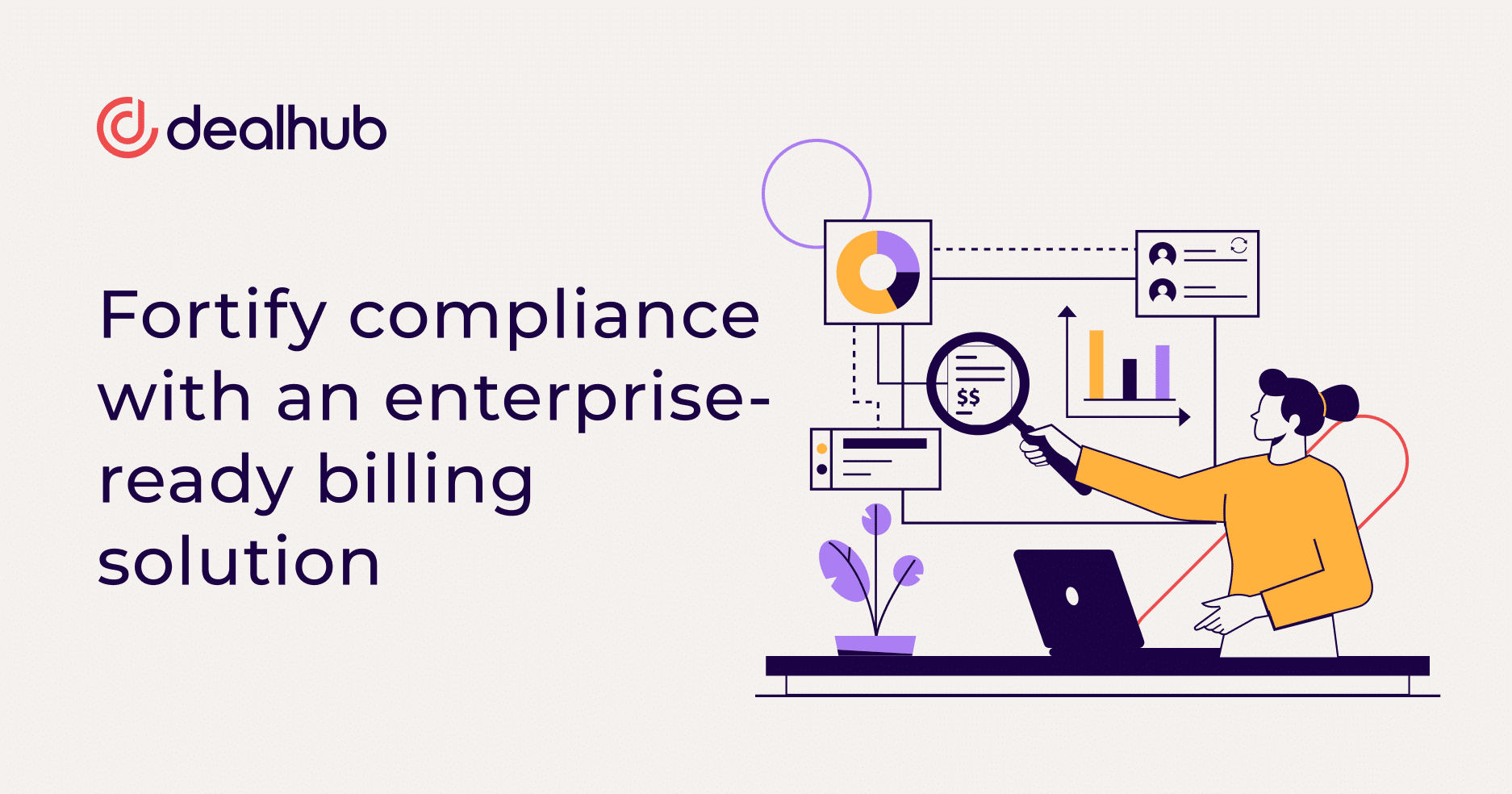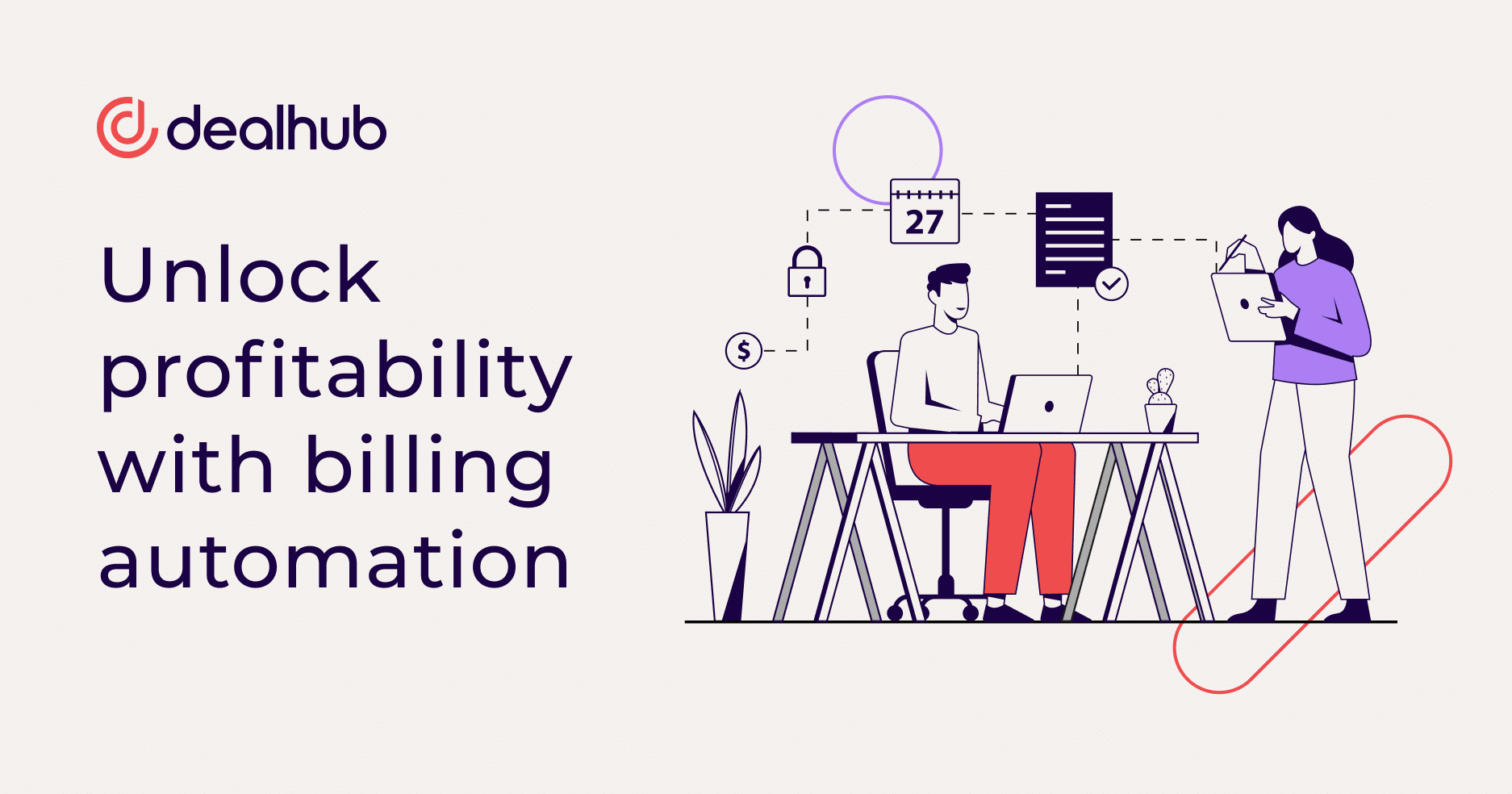Enter modern billing software that is transforming enterprise management. These solutions are no longer mere tools for transaction processing; they have evolved into strategic assets, pivotal in guiding companies toward heightened efficiency and profitability.
Below, we explore enterprise billing software’s strategic advantages, operational efficiencies, and financial insights. From enhancing decision-making capabilities to providing real-time analytics and fostering operational synergies, its impact extends far beyond traditional billing functions. We’ll reveal how cutting-edge billing technology is becoming an indispensable ally for leaders in their quest to optimize revenue and drive sustainable growth.
Billing technology: the solution for enterprise leaders

Enterprise billing solutions are sophisticated systems designed to manage the complex billing processes of large organizations. They encompass a broad range of functionalities, from automating invoice creation to handling diverse pricing models and integrating with various payment gateways. Central to their purpose is streamlining billing and revenue management, catering to the complex needs of large-scale businesses.
Evolution of billing systems
The evolution from traditional to modern billing systems marks a significant leap in operational efficiency and strategic integration. Where once billing was a back-office administrative task, it has now transformed into a front-line strategic function. Modern systems are characterized by their ability to seamlessly integrate with other enterprise software, offering a unified view of business operations and enabling a more agile response to market changes.
Billing technology and leadership
In the context of enterprise leadership, billing technology has taken on a role of paramount importance. It provides leaders with real-time financial data and actionable insights, critical for informed decision-making. As businesses grapple with the complexities of global markets and customer demands, the integration of advanced billing systems into their strategic planning is becoming increasingly indispensable. This technological integration empowers leaders with the tools to drive revenue growth, optimize operational efficiency, and maintain a competitive edge in a rapidly evolving business landscape.
Strategic advantages of modern billing solutions
The integration of modern billing technology into enterprise systems revolutionizes the capabilities of senior executives, particularly in decision-making processes. A suite of advanced features drives this revolution:
Enhanced decision-making capabilities for senior executives
Today’s billing solutions equip leaders with immediate access to essential financial data and customer behavior analytics. For instance, a company using advanced billing software can analyze customer usage patterns, enabling tailored service offerings. This immediate access to data is crucial for agile, informed decision-making, allowing leaders to swiftly respond to market trends and customer needs.
Optimization of revenue streams
Automated invoicing and payment processing, coupled with dynamic pricing models, are key in effectively managing and optimizing revenue streams. A telecommunications company, for instance, might use these solutions to adjust prices based on usage and customer segments, thereby maximizing revenue while maintaining competitive pricing.
Improved customer relationship management
Personalized billing experiences, enabled by these systems, play a crucial role in strengthening customer relationships. For example, a utility provider offering customized billing plans based on individual consumption patterns enhances customer experience and loyalty.
Accurate and transparent billing practices foster trust among stakeholders and customers. Consider a software-as-a-service (SaaS) company that provides clear, itemized billing statements, which not only builds customer trust but also streamlines financial reporting and billing compliance.
Modern billing solutions offer strategic advantages that extend well beyond basic transaction processing. They enable enhanced decision-making, optimize revenue, improve customer relationships, and ensure transparency, all of which are fundamental in steering enterprises toward success.
Operational efficiencies ensure scalability
These systems streamline billing and fundamentally transform how organizations handle their financial transactions, ensuring operational scalability for enterprises. This is evident in several key areas:
Reduction of manual errors
By automating various aspects of the billing process, these systems drastically reduce the likelihood of errors. For example, an automated system can eliminate common mistakes in data entry or calculation, which are prevalent in manual processes. This accuracy is crucial for enterprises dealing with large volumes of transactions.
Efficiency in billing cycles
These solutions also enhance the efficiency of billing cycles. By automating routine tasks, such as invoice generation and distribution, finance leaders can accelerate their invoicing processes, thereby improving cash flow and reducing late payments. For instance, a wholesale distributor can use automated billing to ensure timely and consistent invoicing across its numerous locations.
Seamless connectivity with CRM, ERP, and other platforms
The true power of modern billing solutions lies in their ability to integrate seamlessly with other business systems. This integration extends to CRM, CPQ, ERP, and other platforms, creating a unified system for managing all aspects of business operations. For example, billing integration with a CRM system allows for real-time customer record updates, enhancing billing accuracy and customer service.
Interdepartmental coordination and data sharing
Furthermore, these solutions facilitate interdepartmental coordination and data sharing. By breaking down silos and enabling seamless data flow between departments, businesses can operate more cohesively. This integration is particularly beneficial in complex projects involving multiple departments, where coordination and real-time data are essential for success.
In essence, the operational efficiencies offered by modern billing solutions are pivotal in ensuring the scalability of enterprise operations, enhancing accuracy, speeding up processes, and facilitating seamless integration across various business functions.
Financial insights drive informed decisions
For finance and revenue leaders, enterprise billing solutions also serve as a cornerstone for driving informed, strategic decisions through detailed financial insights and compliance management.
Granular financial reporting and analysis
Billing platforms now offer granular financial reporting and analysis, enhancing forecasting accuracy and risk management. This level of detail allows leaders to make more informed decisions based on comprehensive financial health data. For instance, a manufacturing enterprise can leverage detailed revenue trends from its billing system to forecast future sales, helping to allocate resources more effectively and plan budgets with greater precision.
These solutions also play a crucial role in identifying revenue leaks and at-risk customers. Detailed financial reports can reveal opportunities to reduce customer churn and rectify system issues causing billing errors or late payments.
Compliance and regulatory adherence
In addition to financial insights, billing solutions are instrumental in ensuring compliance and regulatory adherence. They help ensure adherence to industry standards and regulations, which is particularly important for sectors like banking and healthcare, where non-compliance can result in substantial penalties.
Furthermore, these systems ensure accuracy and transparency in financial reporting. Accurate and transparent billing builds trust with stakeholders and simplifies compliance with financial regulations. For example, a publicly traded company can use its billing system to ensure transparent reporting, vital for regulatory compliance and investor relations.
The future of enterprise leadership: a blend of billing and technology
As we look to the horizon of enterprise technology, billing solutions are rapidly evolving, with artificial intelligence (AI) poised to redefine their scope and impact. AI integration in billing systems promises unprecedented efficiency and predictive capabilities. This technological leap is not just an upgrade; it’s a transformation that will change how leaders approach financial management and strategic decision-making.
Integrating AI in billing solutions will bring about a new era of automation and intelligence. For example, AI-driven billing systems can predict customer payment behaviors, enabling proactive management of receivables and cash flow. They can also personalize billing and service offerings in real time based on customer data and interaction history, enhancing customer satisfaction and loyalty.
This technological evolution will inevitably reshape enterprise leadership strategies. With AI-enhanced billing solutions, leaders can access deeper insights into financial performance and customer trends, enabling more nuanced and forward-thinking strategies. The predictive analytics offered by these systems will allow leaders to anticipate market shifts and customer needs, positioning their companies for proactive rather than reactive management.
Final thoughts on strategic billing operations
In an era where technology and leadership are increasingly intertwined, the adoption of modern billing solutions is not merely an operational decision but a strategic one. Leaders who embrace these advanced technologies will position their enterprises at the forefront of efficiency, innovation, and growth. As such, it is imperative for enterprises to not only acknowledge but actively integrate these evolving billing solutions. Doing so will ensure they remain competitive, agile, and poised for continued success. The future of enterprise leadership is here, and it is inextricably linked with the advancements in billing technology.









